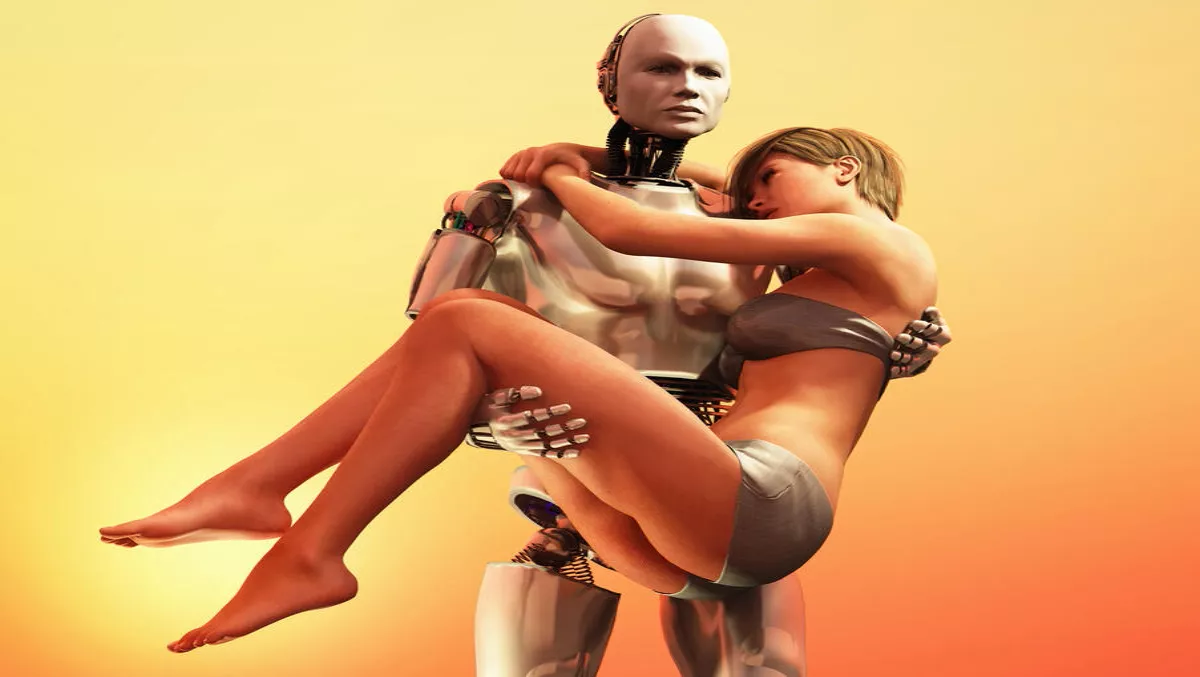Robots and sexuality took centre stage at the 12th IFIP TC9 Human Choice and Computers (HCC12) Conference in the UK last week.
The theme of the conference was ‘Technology and Intimacy: Choice or Coercion?', and looked to explore how technology is influencing the ways in which humans create and express intimacy.
IFIP TC9 is the group focused on ICT and Society within IFIP, the global professional association for the ICT sector. HCC12 Program Committee Chair, Dr David Kreps of Salford University, says the event considered the latest research and theories about how humans engage with robots, Artificial Intelligence (AI) and other forms of technology to explore issues of intimacy and sexuality.
Kreps says there are strong arguments on both sides. David Levy's 2008 book, Love and Sex with Robots suggests that humans will fall in love with and even marry social robots in the not too distant future. On the other hand, robotics ethicist, Kathleen Richardson, is campaigning to ban sex robots because she believes these kinds of robots are potentially harmful and will contribute to inequalities in society.
Kreps, who wrote a 2013 paper entitled, Performing the Discourse of Sexuality Online, believes there is a world of difference between the picture painted by science-fiction and the reality we face today.
“You have to ask the question – how genuinely human can any robot ever be?” he says.
“Love takes two people – it's about human beings. A very large part of the physical and chemical connection between humans relies on eye contact and you're never going to experience that with a machine, no matter how much AI there is,” he explains.
Kreps says new advances have increased the level of intimacy in which human engage with technology.
“Increasingly, we can wear technology to monitor our health or enhance access to information, we engage with social media in a highly personal nature and can even implant technology devices in our bodies to track movement or communicate,” he says.
“Sex robots are simply another way in which technology is being developed to enhance pleasure,” Kreps adds.
Ghislane Boddington, co-founder and creative director at body>data>space, presented a keynote at the conference on what she calls, ‘The Internet of Bodies'. Boddington sees this interlinking of bodies, information on our movements and senses to technology and the robots or avatars we choose to create, as being the future of love and intimacy.
According to Kreps, “A key consideration with all these more intimate applications of technology is that humans understand the implications of their involvement, such as who might access or use the data being collected about them from wearable devices, and have given their consent for that.
He says many people today share intimate details of their lives on social media or post video of themselves on dating sites.
“The kind of chatter that used to be shared just with close friends or family is now being harvested online by global corporations and used to target us with advertising – that's the level of intimacy that technology has established,” Kreps says.
“Add to that the global availability of online porn and the use of social media and dating sites to make connections and engage in sexual discourse, and it's clear that technology is both enabling and shaping new forms of intimacy and sexual expression,” he says.
“And those are definitely issues worth discussing,” he adds.

